Biotin Rich Foods: Comprehensive Guide To Boost Your Health
Almonds, eggs, salmon, and more — foods rich in this vitamin promote overall health.
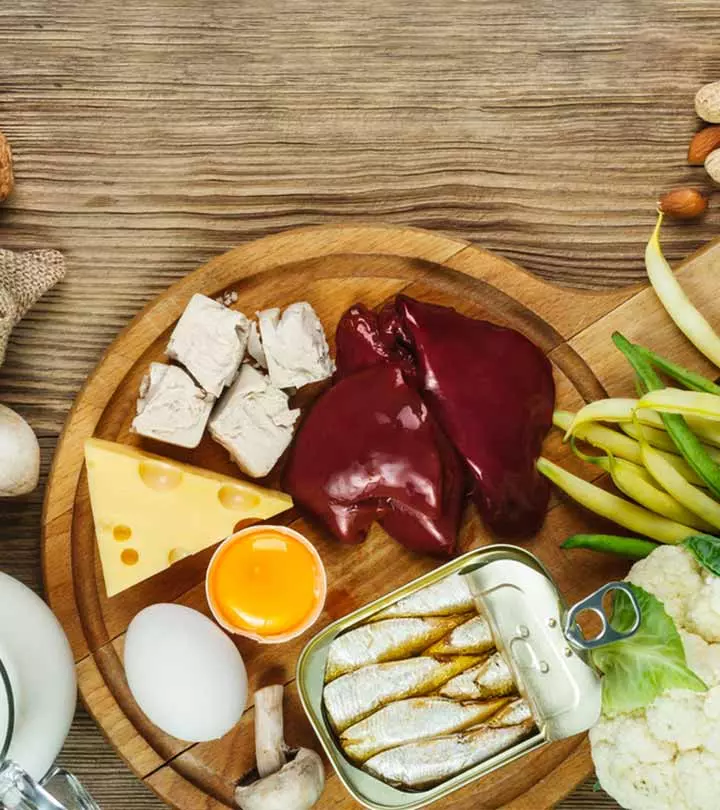
Image: Shutterstock
Biotin, also known as vitamin B7, is an essential nutrient that plays a role in almost all body systems. So, does your diet consist of biotin-rich foods? If not, tweak your diet a bit before it is too late.
In this article, we have listed 16 foods high in biotin and explained how this nutrient benefits your health. Read on!
In This Article
What Is Biotin?
Simply put, biotin is a B vitamin. It is also called vitamin B7 (or vitamin H) and is one of the B complex vitamins that convert food into energy.
The name ‘biotin’ originates from the ancient Greek word ‘biotos’, which means ‘sustenance’ or ‘life’.
 Did You Know?
Did You Know?Alright. But why is this nutrient important?
Key Takeaways
- Foods rich in Biotin may support your metabolism, regulate cholesterol levels, and manage sugar levels.
- Including foods like avocado, egg, salmon, almonds, and cauliflower may improve the biotin level in your body.
- You can also consume biotin supplements after talking to your doctor.
- The recommended dosage of biotin for an adult is 30mcg.
What Are The Benefits Of Biotin (Vitamin B7)?

Biotin is essential for the health of your brain, eyes, skin, hair, nails, liver, and also the nervous system. It is important during pregnancy as it supports embryonic growth (1).
Recent research has stated that getting additional biotin regulates blood sugar levels, promotes the health of the hair, skin, and nails, and even helps pregnant mothers have healthier babies.
Biotin may have the potential to improve skin health. Biotin helps produce keratin, a protein that gives your skin its structure and strength. With enough biotin, your skin can stay strong and less dry or oily. This balance is essential for maintaining a healthy complexion. However, more research is required in this regard.

Biotin has garnered attention for its potential role in hair health as well. Research suggests Biotin is beneficial for hair growth. You can consume it in different ways. You can take Biotin through your diet or apply it as a topical product. For those with inherited carboxylase enzyme deficiencies, doctors generally prescribe larger doses of biotin (ranging from 10,000 to 30,000 μg/day). However, individuals with conditions like brittle nail syndrome or uncombable hair syndrome may require lower doses of biotin (300 to 3,000 μg/day) to see a reduction in hair loss (2).
However, it is important to note that there have not been randomized, controlled trials confirming the efficacy of biotin supplementation in healthy individuals who don’t have a biotin deficiency. Therefore, while biotin can be beneficial for certain conditions, its effectiveness in addressing hair loss in people without any underlying deficiencies remains inconclusive.
Additionally, biotin supports your metabolism and balances blood sugar levels. It also protects the heart as it increases good cholesterol (HDL) levels (3).
Biotin is also essential for muscle health and repair.
Biotin is important. Below, we have listed foods rich in this nutrient.
What Are The Foods Rich In Biotin (Vitamin B7)?
These are the top foods rich in biotin (4):
- Liver
- Almonds
- Eggs
- Yeast
- Avocado
- Whole grain bread
- Salmon
- Cauliflower
- Cheeses
- Raspberries
1. Liver
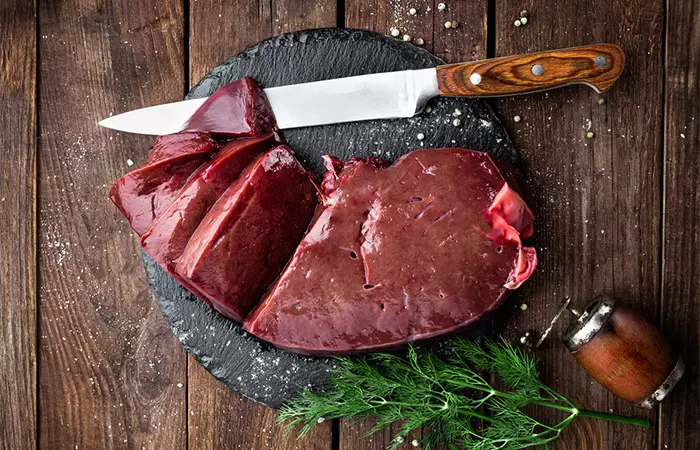
Three ounces of cooked (beef) liver contain 30.8 micrograms of biotin (5). Beef liver also contains a large amount of high-quality protein. Other important nutrients include B vitamins and folate. Protein builds muscle mass and is important for cell function too. B vitamins sustain your energy levels while folate improves heart health.
How To Include In Your Diet
Simply throw 2 to 3 cubes of beef liver into taco meat.
2. Eggs
One whole cooked egg contains 10 micrograms of biotin (5). We can’t stress enough about the importance of eggs. They are whole foods. They are a complete protein with an extensive amino acid profile. The protein aids muscle growth and helps in energy production.
Eggs are also rich in zinc, iodine, selenium, and vitamins A and D – nutrients beneficial for healthy thyroidi A butterfly-shaped gland present near the throat which plays a key role the development of the body and metabolism. function and the entire endocrine system.
How To Include In Your Diet
Fix anyway you prefer, but try to buy “organic” chicken eggs, which are free of pesticides, herbicides, and other potentially harmful chemicals. Have them anytime you need a good source of protein, fat, and important nutrients. For a protein and nutrient boost, you can add egg yolks – where all of the nutrients of the egg is concentrated – to an organic salad.
3. Salmon
Three ounces of salmon contain 5 micrograms of biotin (5). Alaskan or wild-caught salmon is best and lowest in contaminants. Avoid farm-raised salmon, which is often high in mercury and PCBs. Apart from biotin (or vitamin B7), salmon is rich in omega-3 fatty acids. And these omega-3 fatty acids (EPA and DHA) do wonders for optimal health. They reduce inflammation caused by everyday pollutants, protect the heart, improve brain health, and keep your hair and skin healthy.
How To Include In Your Diet
Add chopped salmon to your breakfast omelet, lunch salad, or have it with a sweet potato and other veggies at dinner time.
4. Pork Chop
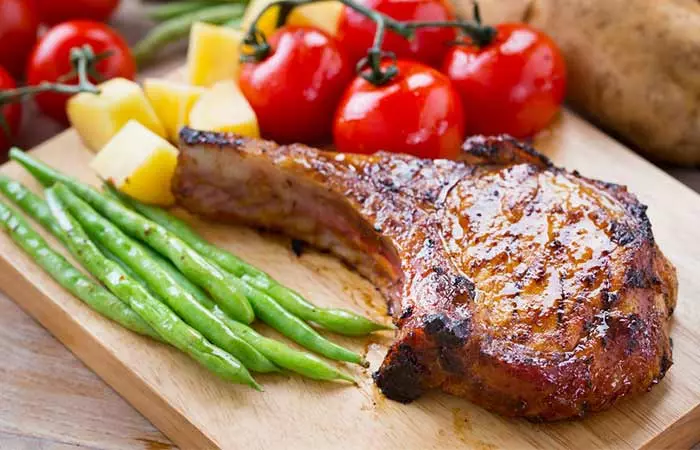
Three ounces of cooked pork chop contain 3.8 micrograms of biotin (6). Pork chops offer a big boost of complete protein. In addition to building muscle, protein also supports the structure and maintenance of tissues. Another nutrient pork chops are particularly rich in is zinc – a nutrient that strengthens the immune system.
How To Include In Your Diet
You can add sliced pork chops to your salad.
5. Sweet Potato
Half a cup of cooked sweet potato contains 2.4 micrograms of biotin (6). Apart from biotin, sweet potatoes are also rich in beta-carotene – a powerful antioxidant that enhances your skin’s appearance. Beta-carotene and other carotenoids found in sweet potatoes are also known to be important for healthy vision and prevent related diseases like macular degeneration. Beta-carotene and biotin keep skin healthy and youthful. Biotin for the skin helps improve its texture and skin barrier function.
How To Include In Your Diet
You can sprinkle salt on boiled or mashed sweet potatoes and have it as a snack, or as a healthy addition to any meal.
6. Almonds
One-fourth cup of roasted almonds contains 1.5 micrograms of biotin (6). Almonds are also particularly rich in magnesium and vitamin E. They are also rich in fiber that promotes satiety and aids weight loss. Other nut varieties like walnuts, cashews, and peanuts are also rich biotin sources.
How To Include In Your Diet
A handful of almonds or a little almond butter on a fruit is a good, any time snack. Or add almonds or almond butter to your smoothie for a boost in protein and healthy fat.
7. Tuna
Three ounces of canned tuna contain 0.6 micrograms of biotin. Just like salmon, tuna is also rich in selenium and omega-3 fatty acids, which help reduce elevated cholesterol and triglyceridesi A type of fat present in the blood which in high levels can cause pancreatitis or hardening of the arteries. and have a powerful cardioprotective effect. Select smaller tuna varieties, such as skipjack, which has the lowest level of mercury and other contaminants.
How To Include In Your Diet
Simply add tuna to your salad, or make a tuna sandwich with a little organic mayonnaise or extra virgin olive oil and pickles.
8. Spinach
Half a cup of boiled spinach contains 0.5 micrograms of biotin. Spinach is rich in vitamins, minerals, fiber, and chlorophyll. And it is particularly rich in iron (remember Popeye?). The antioxidants in spinach help to keep you healthy, slow the aging process, and protect against disease. As with all leafy green vegetables just make sure its organically grown (i.e., free of chemicals) for the greatest health benefits.
And the iron in spinach, taken along with 250-1,000 mg of vitamin C, helps to prevent anemia by improving iron absorption.
How To Include In Your Diet
You can add spinach to any salad or your egg omelet for breakfast or dinner.
9. Broccoli
Half a cup of fresh broccoli contains 0.4 micrograms of biotin. Broccoli is often dubbed as a superfood for the simple reason that it is loaded with nutrients. It is rich in vitamin K that promotes bone and skin health. And the vitamin C and antioxidants this mini tree contains help prevent various forms of cancer.
How To Include In Your Diet
You can eat broccoli raw, cooked, or add it to your favorite salad with carrots and tomatoes for a nutrient boost.
10. Cheddar Cheese
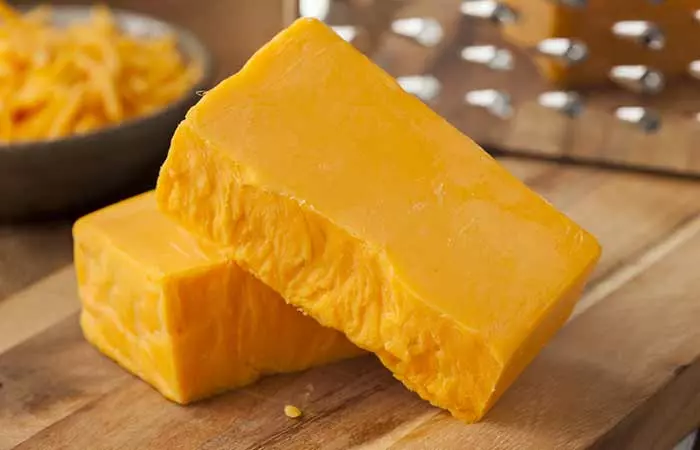
One ounce of mild Cheddar cheese contains 0.4 micrograms of biotin. Cheddar cheese is also rich in protein (1 slice contains 7 grams), and it is complete – containing all of the essential amino acids. The cheese is a good source of calcium and phosphorus as well – the former is essential for muscle function and bone development, and the latter plays a role in kidney function and DNA production.
How To Include In Your Diet
You can add the cheese to your breakfast toast or any salad.
11. Milk
One cup of milk contains 0.3 micrograms of biotin. Milk is a great source of calcium, protein, and minerals that help build healthy bones and teeth. The protein it contains helps to build muscle and repair tissues, and the potassium protects the heart by maintaining healthy blood pressure levels.
How To Include In Your Diet
A little warm milk and honey in the evening before bed can be relaxing and promote restful sleep.
12. Plain Yogurt
One cup of plain yogurt contains 0.2 micrograms of biotin. Yogurt is also super rich in calcium. And it also has good amounts of vitamin D, the deficiency of which, sadly, is commonplace today. A deficiency in vitamin D can lead to hair fall, weakness, and other issues that can become severe if ignored.
How To Include In Your Diet
You can have plain yogurt for breakfast or as an anytime snack. You can also add your favorite fruit to yogurt and have it as a refreshing evening snack.
13. Oatmeal
One cup of oatmeal contains 0.2 micrograms of biotin. A bowl of oatmeal is one of the healthiest breakfast options. Oatmeal is basically whole grain, and whole grains can cut the risk of diabetes, obesity, and even cancer.
Oatmeal also helps lower cholesterol levels and protects the heart.
How To Include In Your Diet
Have a bowl of oatmeal with some almond butter and fruit for breakfast. It’s a healthy meal any time.
14. Banana
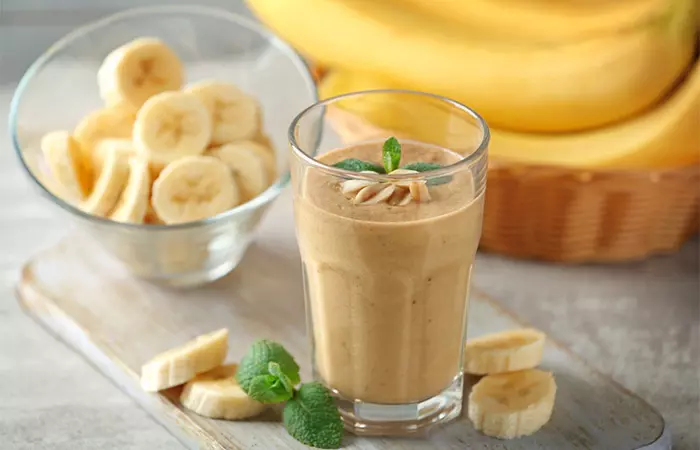
Half a cup of banana contains 0.2 micrograms of biotin. Bananas are known for their potassium levels and their ability to offer an energy boost when needed. They also contain fiber that improves digestive health and regularity.
How To Include In Your Diet
Whole bananas can be a wonderful addition to your breakfast or as an anytime snack. You can also slice them and add to your breakfast smoothie or acai bowl. Salads and smoothies can be topped with seeds like sunflower seeds, pumpkin seeds, flaxseeds, and chia seeds to up the biotin content in the diet. Include lentils and legumes like beans, peas, and soybeans as soups or fillings.
That’s some of the top foods rich in biotin. Now, we have the question – how do you know if you’re getting enough biotin?
Are You Getting Enough Of Biotin?
Biotin deficiency is not common – because most of the foods that we usually eat naturally contain biotin. There are certain signs that tell you if you are not getting enough of this nutrient. They are (7):
- dry or scaly skin
- brittle hair and hair loss
- fatigue
- loss of appetite
- nausea
- depression
- muscle pain
- seizures
- difficulty in walking
- difficulty in sleeping
- cracking in the corners of the mouth
- dry eyes
- frequently upset stomach
- burning sensation in the hands and feet
Alright. But how do you ensure you aren’t deficient in biotin in the first place? The easiest way is by consuming a balanced diet and supplementing with a high-quality multivitamin that contains biotin.
What Is The Recommended Daily Allowance Of Biotin (Vitamin B7)?
The following table tells you how much biotin you need on a daily basis.
| AGE/STATE OF LIFE | RDA OF BIOTIN |
|---|---|
| Birth to 6 months | 5 mcg |
| 7 to 12 months | 6 mcg |
| 1 to 3 years | 8 mcg |
| 4 to 8 years | 12 mcg |
| 9 to 13 years | 20 mcg |
| 14 to 18 years | 25 mcg |
| 19 years and above | 30 mcg |
| Pregnant women | 30 mcg |
| Lactating women | 35 mcg |
Also, biotin toxicity is very rare. Though, some people may be sensitive to doses above 2,500 mcg with excess sebum production, and acne-like breakouts. Excess of biotin usually doesn’t cause any serious side effects.
How do you ensure you get enough amounts of biotin every day? Simple. By including the foods we mentioned in your diet. Or you can even opt for biotin supplements.
 Quick Tip
Quick TipWhat Are The Best Biotin Supplements?
Biotin is available in the supplemental form through supplements that contain biotin alone or combinations of B-complex vitamins. It can also be present in certain multivitamin/multimineral supplements.
Biotin supplements usually come in three amounts – 10, 50, and 100 mcg. Talk to your doctor about the interactions biotin supplements might have with certain medications.
It also is important to know what causes biotin deficiency so that you can take appropriate measures.
What Causes Biotin Deficiency? Who Is At Risk?
Following are certain factors that can lead to biotin deficiency (7):
- Certain Medications
Certain medicines might prevent your body from absorbing vitamins the right way. Some of these include antibiotics and anti-seizure drugs. Antibiotics might also destroy the good bacteria in your gut that naturally produce biotin.
- Intestinal Problems
Chronic intestinal problems like Chron’s disease and colitis can prevent your body from absorbing nutrients.
- Long-Term Dieting
Long-term dieting might keep you from getting all the required vitamins and minerals, and this can also cause biotin deficiency.
- Biotinidase Deficiency
Though rare, this hereditary disorder prevents your body from reusing biotin. Your body usually reuses vitamin B7 a few times before removing it through waste. This may not happen if you have biotinidase deficiency.
Following are some people that are at a higher risk of biotin deficiency:
- pregnant women
- people using medications like antibiotics
- people using IV feeding
Infographic: 8 Everyday Foods Rich In Biotin
Biotin is an essential nutrient that supports various bodily functions. It boosts metabolism, regulates blood sugar levels, and enhances heart health. We have rounded up the top 8 biotin-rich foods you should include in your diet in the infographic below. Check it out to know more!
Some thing wrong with infographic shortcode. please verify shortcode syntaxBiotin (vitamin B7) is one of the most important B vitamins that is essential for almost all bodily functions. It plays a key role in the optimal health of the brain, eyes, liver, and skin. This vitamin also helps boost good cholesterol levels, control blood glucose levels, improve metabolism, and reduce the risk of heart disease. The best way to get enough vitamin B7 is to consume biotin-rich foods like liver, almonds, eggs, yeast, avocado, cheeses, etc.
If you often experience symptoms like dry skin, hair loss, fatigue, muscle pain, nausea, and dry eyes, chances are that you have a biotin deficiency. Consult a doctor immediately.
Frequently Asked Questions
Which is the best biotin supplement?
The top brands include Natrol Biotin Maximum Strength Tablets, Sports Research Biotin Tablets, and Nature’s Bounty Biotin.
What is the right biotin dosage for hair growth?
Doses from 300 micrograms to as high as 40 milligrams have been recommended for hair growth. However, experts have varied opinions in this regard. Please consult your doctor before you take any step in this direction.
Does biotin really work for reversing hair loss and promoting hair growth?
The evidence is limited. Please consult your doctor.
Are there any treatments I can use to help brighten my skin?
Other than natural home remedies listed in the article, chemical and invasive treatment procedures can help brighten your skin, including skin creams that contain AHAs and Vitamin C, chemical peels for exfoliation, mechanical exfoliation through microdermabrasion, and laser and light therapy that employ intense light beams.
How can I protect my skin from environmental damage that causes dullness?
Dirt, pollutants, and UV rays are the primary reasons for dull skin. Cleanse and exfoliate the skin regularly to remove external dirt and contaminants. A sunscreen is the best way to protect the skin from sun damage.
Illustration: Biotin-Rich Foods You Must Add To Your Diet
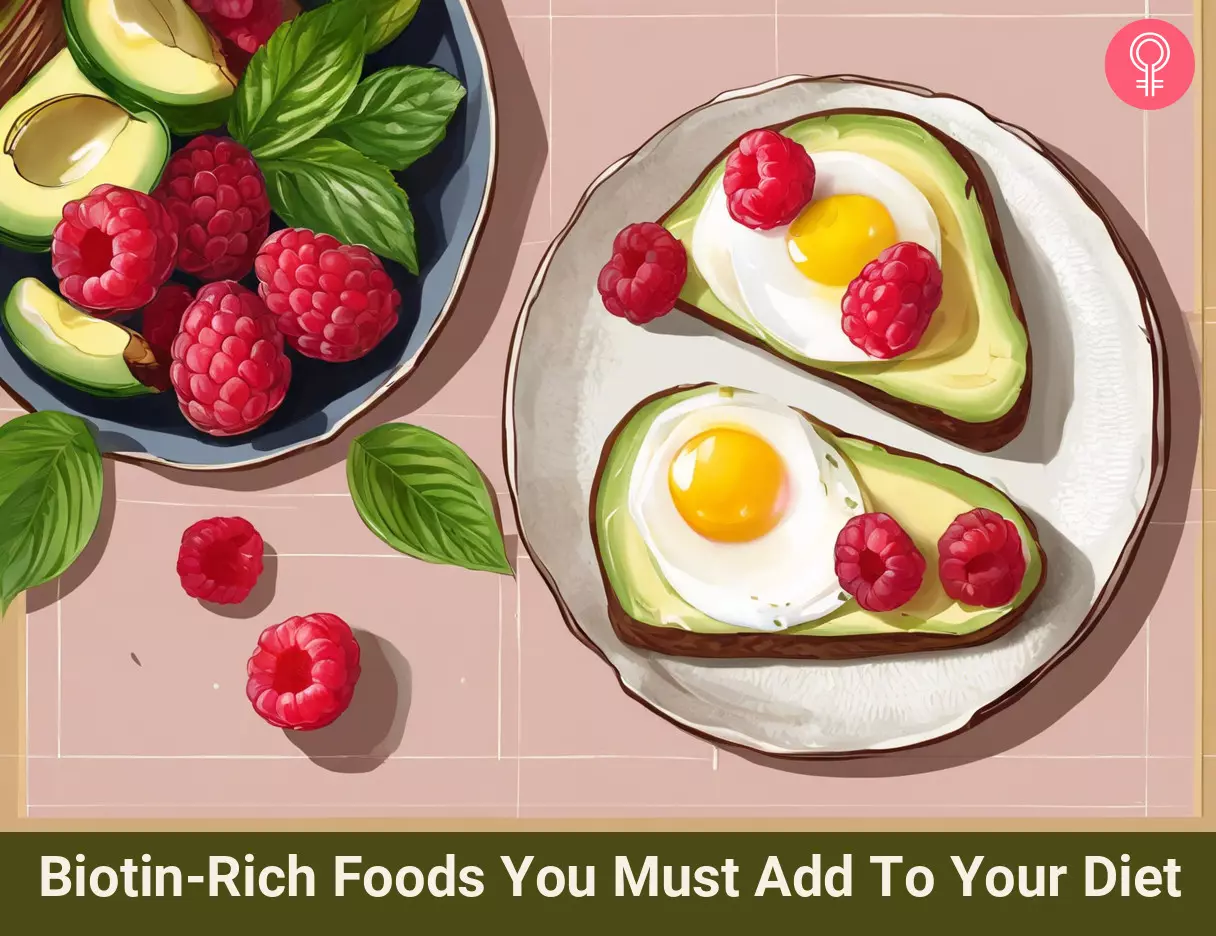
Image: Stable Diffusion/StyleCraze Design Team
Looking to boost your biotin intake naturally? Check out this video for a curated list of the top 10 biotin-rich foods and promote healthy hair, skin, and nails!
References
Articles on StyleCraze are backed by verified information from peer-reviewed and academic research papers, reputed organizations, research institutions, and medical associations to ensure accuracy and relevance. Read our editorial policy to learn more.
- Biotin: From Nutrition to Therapeutics
https://academic.oup.com/jn/article/147/8/1487/4584651 - A Review of the Use of Biotin for Hair Loss
https://www.ncbi.nlm.nih.gov/pmc/articles/PMC5582478/ - Biotin in metabolism and its relationship to human disease
https://pubmed.ncbi.nlm.nih.gov/12459313/ - Determination of the biotin content of select foods using accurate and sensitive HPLC/avidin binding
https://www.ncbi.nlm.nih.gov/pmc/articles/PMC1450323/ - Biotin
https://ods.od.nih.gov/factsheets/Biotin-HealthProfessional/ - Determination of the biotin content of select foods using accurate and sensitive HPLC/avidin binding
https://www.ncbi.nlm.nih.gov/pmc/articles/PMC1450323/ - Biotin and biotinidase deficiency
https://www.ncbi.nlm.nih.gov/pmc/articles/PMC2726758/ - Biotin
https://www.ncbi.nlm.nih.gov/books/NBK554493/ - Biotin Fact Sheet for Consumers
https://ods.od.nih.gov/pdf/factsheets/Biotin-Consumer.pdf - Biotin Interference with Troponin Lab Tests – Assays Subject to Biotin Interference
https://www.fda.gov/medical-devices/in-vitro-diagnostics/biotin-interference-troponin-lab-tests-assays-subject-biotin-interference - National Library of Medicine. Biotin Books
https://www.ncbi.nlm.nih.gov/books/NBK554493/
Read full bio of Dr. Timothy M. Marshall
Read full bio of Ravi Teja Tadimalla
Read full bio of Arshiya Syeda
Read full bio of Aparna Mallampalli






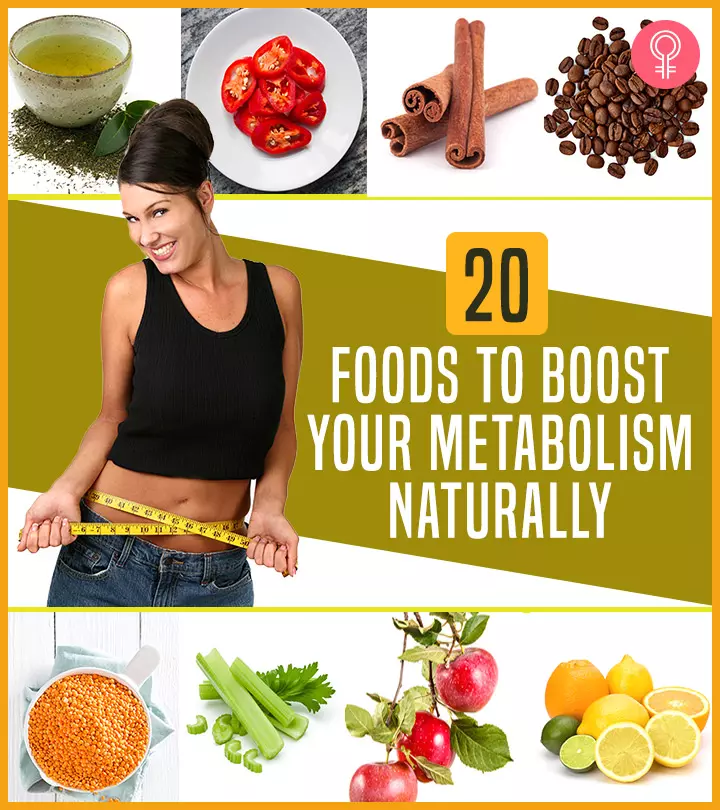
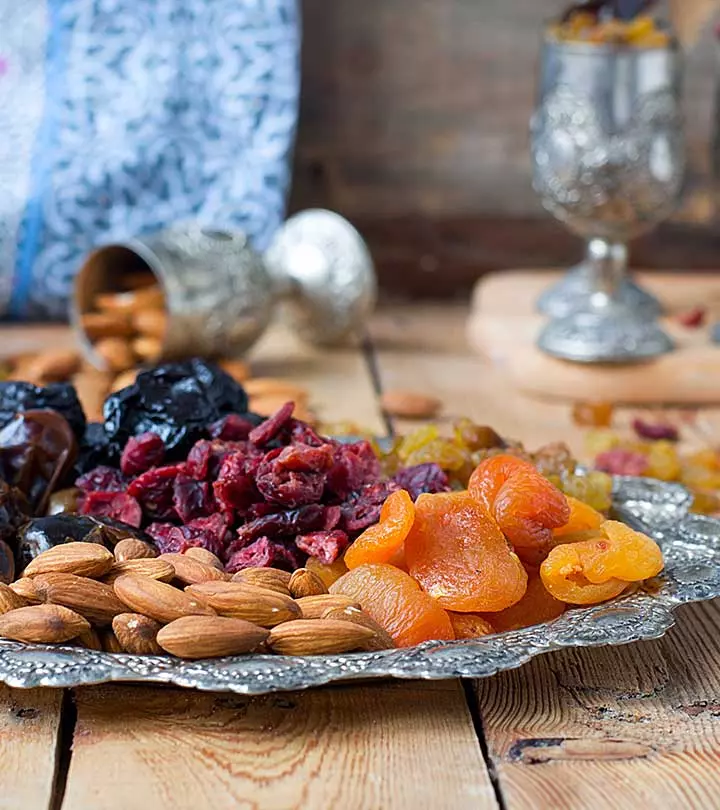
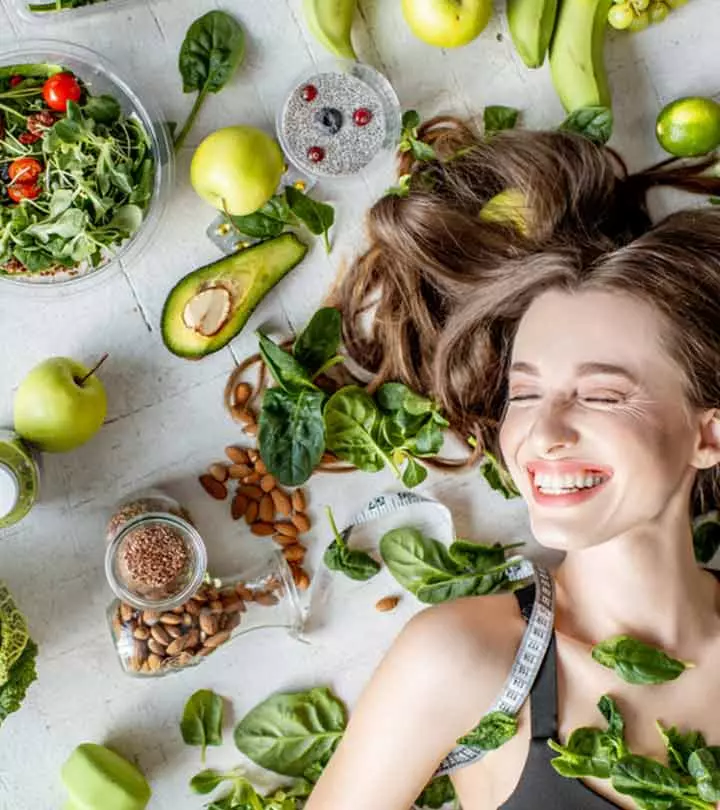
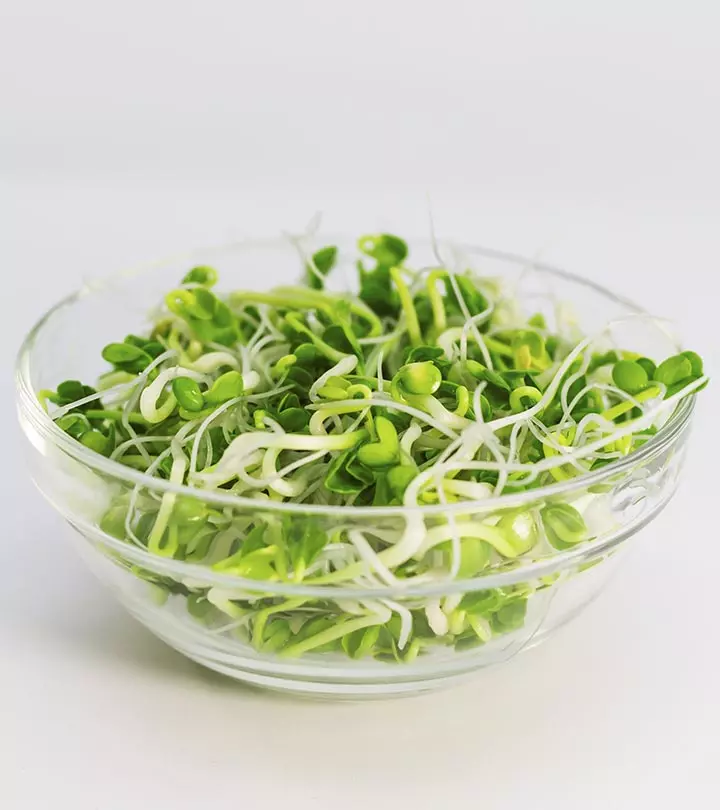

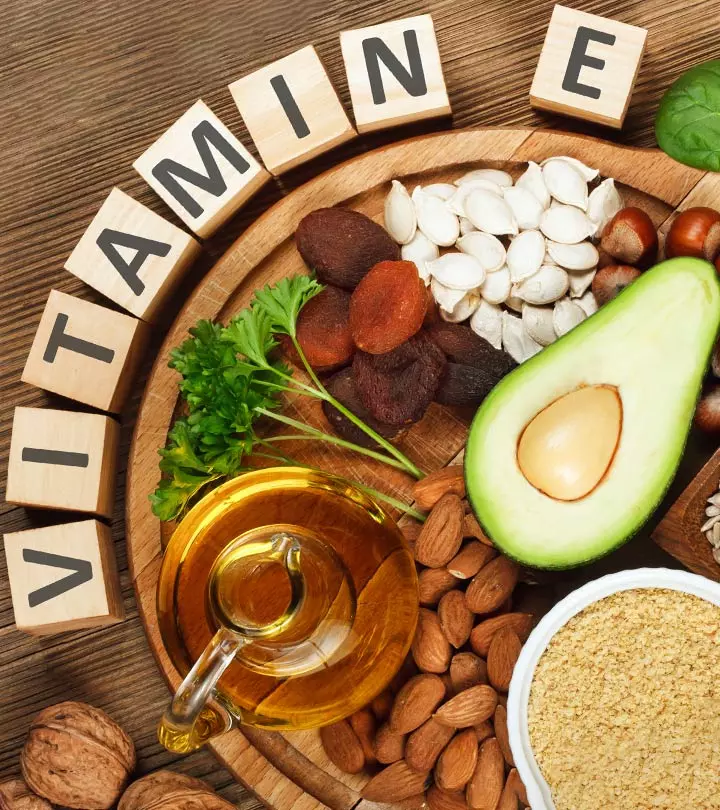



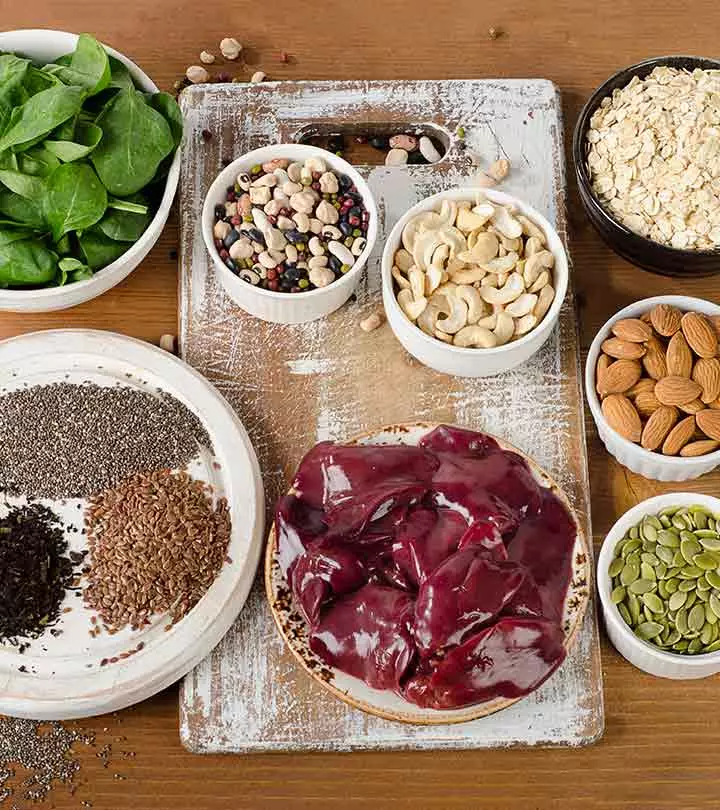
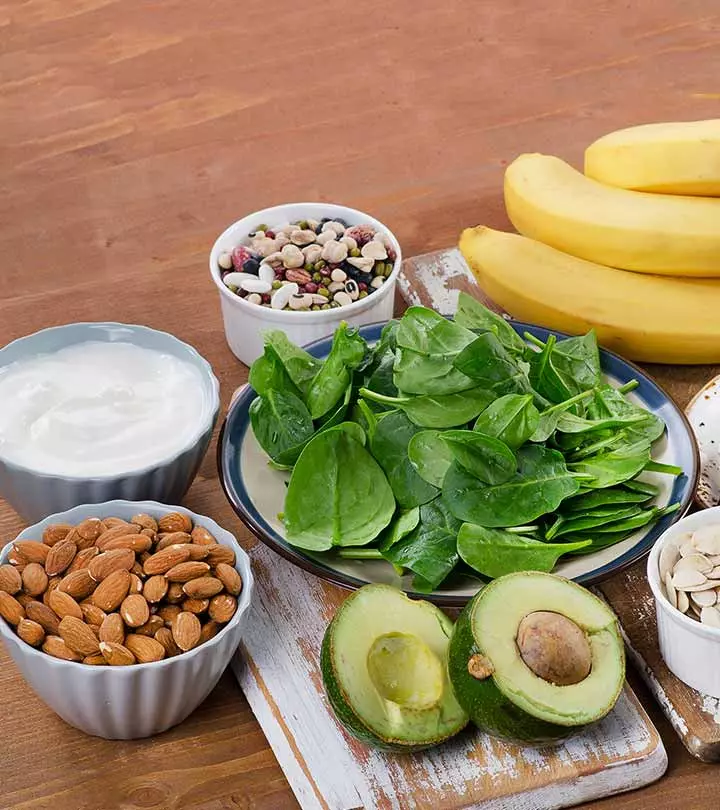
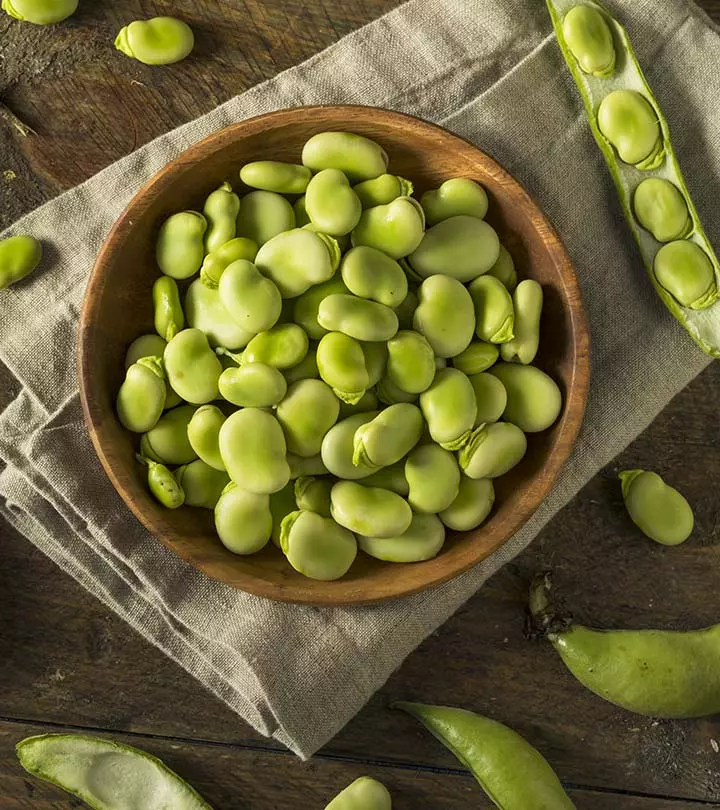
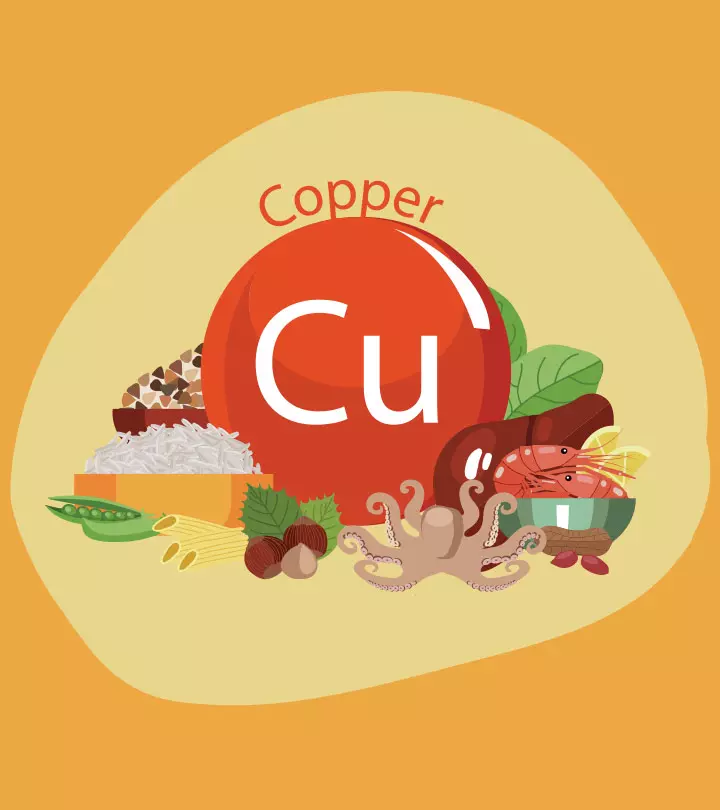
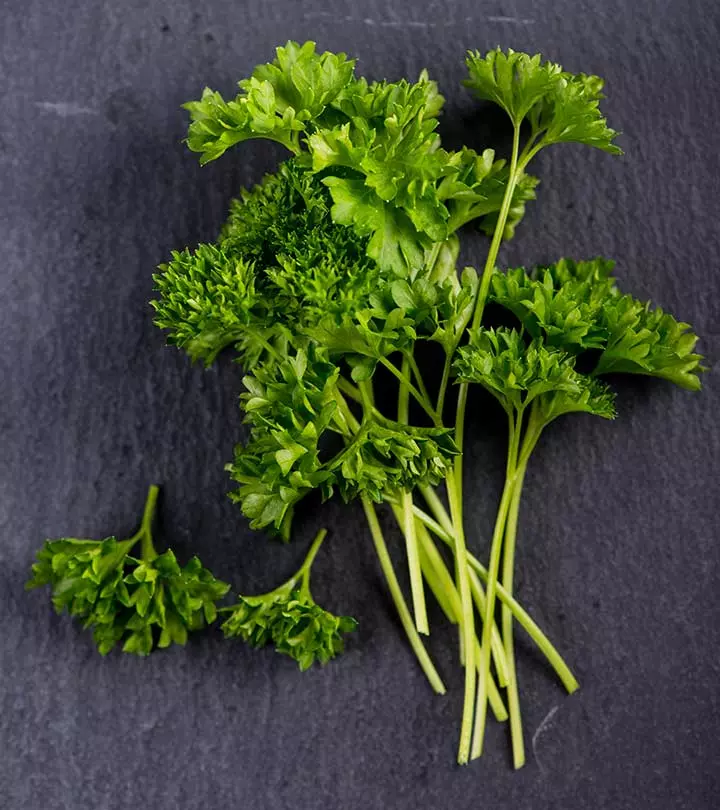
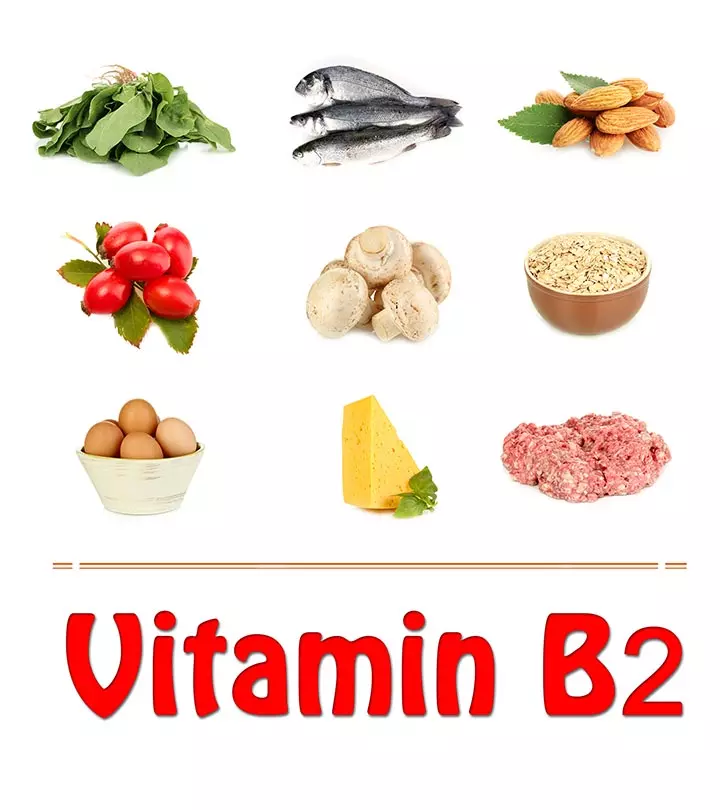

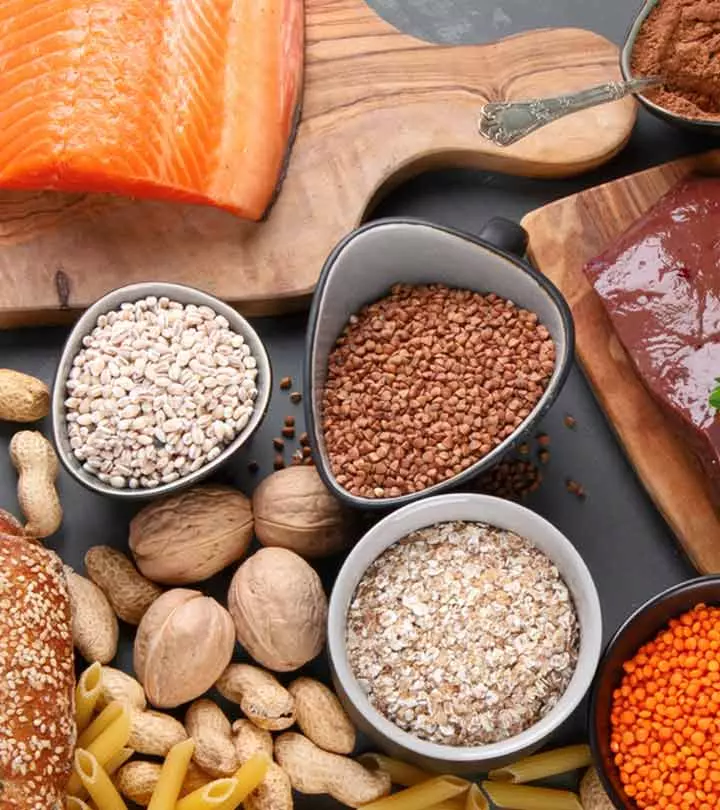
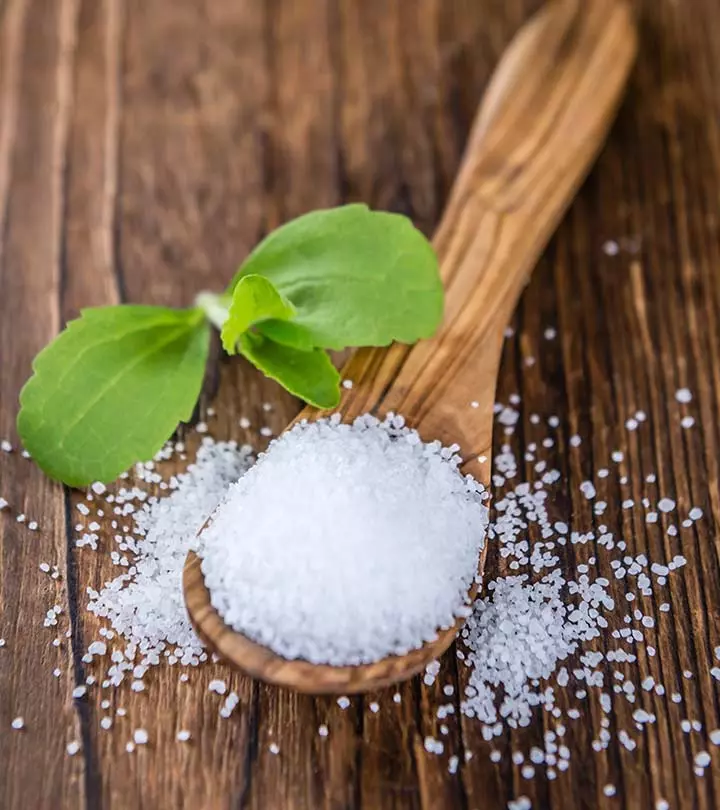
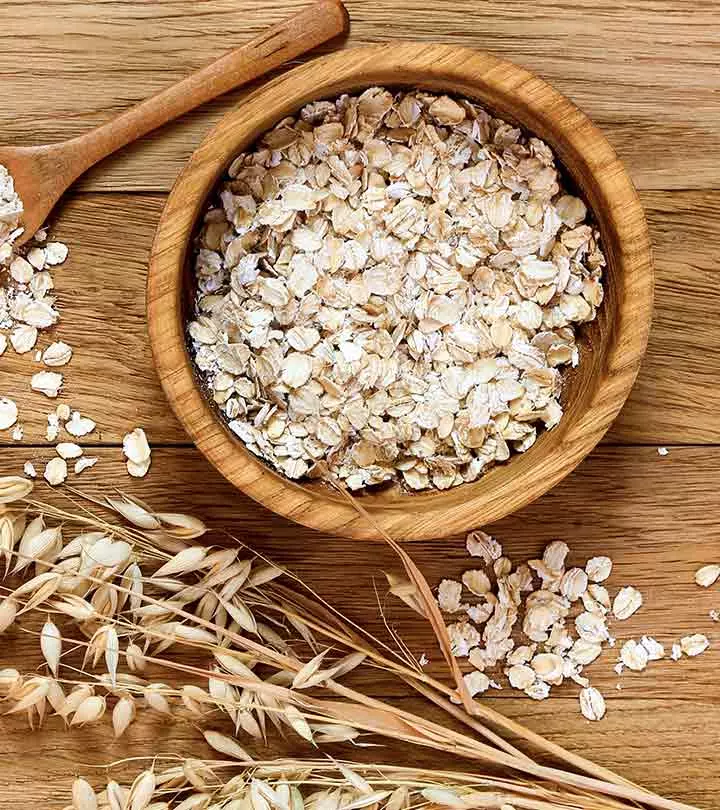
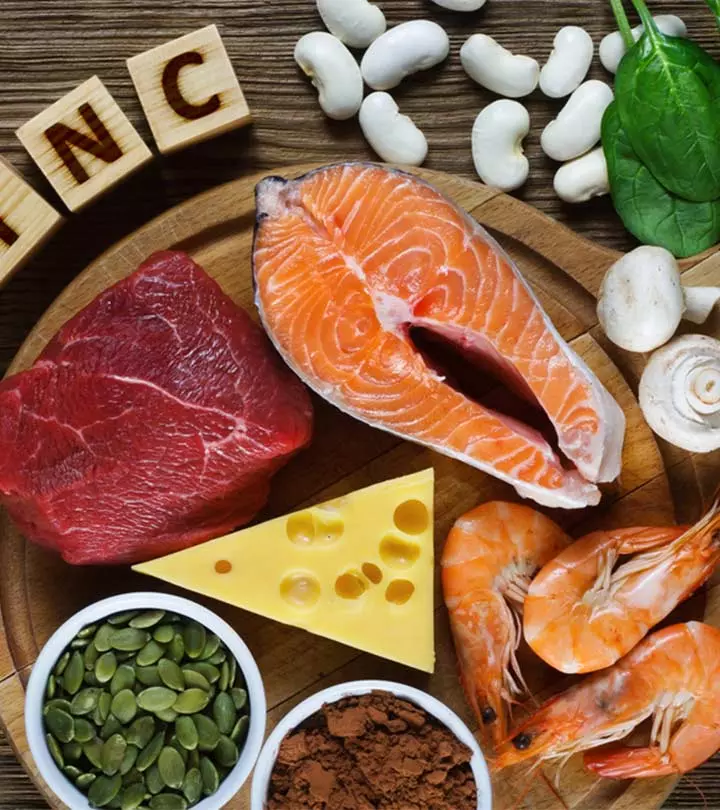
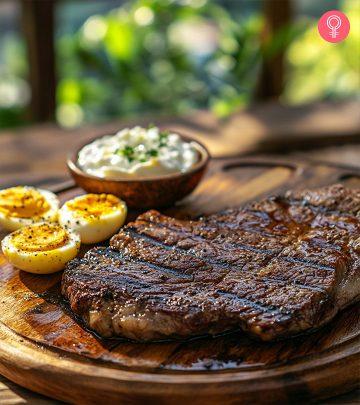
Community Experiences
Join the conversation and become a part of our empowering community! Share your stories, experiences, and insights to connect with other beauty, lifestyle, and health enthusiasts.